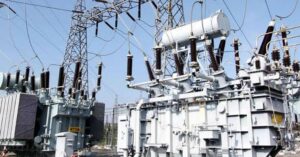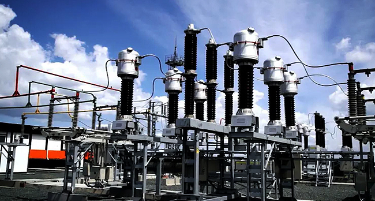The Transmission Company of Nigeria (TCN) has announced that the national grid has been fully restored following a partial disturbance that occurred at approximately 15:09 hours on Saturday. This latest incident marks the third partial disturbance of the national grid this year, in addition to one total disturbance.
In a statement released on Sunday and signed by the General Manager of Public Affairs, Ndidi Mbah, the TCN provided details about the disturbance and the subsequent restoration efforts. According to the statement, the disturbance is suspected to have been triggered by the unexpected tripping of three units at a power generating station. This sudden event removed 313 megawatts (MW) from the grid, causing instability and leading to the loss of bulk supply to a section of the national grid.
The statement explained, “The system disturbance, which brings to three the partial grid disturbances, with one total disturbance this year, is suspected to have been triggered by the unexpected tripping of three (3) units of a power generating station, which suddenly removed 313MW from the grid, causing system instability that led to the loss of bulk supply to a section of the national grid.”
To mitigate the impact of the disturbance, the System Operator quickly responded to the sudden drop in generation, which led to a dip in frequency. The statement detailed the operator’s actions: “The System Operator reacted to the sudden drop in generation which led to a dip in frequency, by islanding a section of the grid which includes the Ibom Power Station. Through this maneuver, the company continued to feed power to Uyo, Aba, Itu, Eket, Calabar, and other areas, even while the other section of the grid had no supply.”
The restoration process commenced immediately after the incident. By 21:57 hours on the same day, the TCN had successfully restored the entire part of the grid that was affected by the disturbance. The statement confirmed, “The operators commenced grid restoration efforts immediately after the incident. At about 21.57 hours yesterday, the entire part of the grid that was affected by today’s incident was successfully restored.”
 The grid collapse led to a nationwide blackout affecting multiple states and the Federal Capital Territory (FCT), Abuja. This incident follows previous collapses this year, with the first occurring on February 4, followed by another nationwide outage on March 28, and a further system collapse on April 15.
The grid collapse led to a nationwide blackout affecting multiple states and the Federal Capital Territory (FCT), Abuja. This incident follows previous collapses this year, with the first occurring on February 4, followed by another nationwide outage on March 28, and a further system collapse on April 15.
These recurring disturbances underscore the challenges faced by Nigeria’s power sector in maintaining a stable and reliable electricity supply. The national grid’s vulnerability to sudden disruptions poses significant difficulties for both consumers and businesses across the country. Each collapse not only causes immediate inconvenience but also has broader economic implications, disrupting daily activities and operations.
The TCN’s swift response and effective grid restoration efforts demonstrate their commitment to mitigating the impact of such disturbances and ensuring the stability of the power supply. However, the frequency of these incidents highlights the need for ongoing investment in infrastructure, improved maintenance practices, and enhanced operational protocols to prevent future occurrences.
Moving forward, it is crucial for the TCN and other stakeholders in Nigeria’s power sector to address the underlying issues contributing to grid instability. This includes upgrading aging infrastructure, enhancing grid management systems, and increasing the capacity and reliability of power generation sources. Additionally, greater collaboration between the government, private sector, and international partners can help drive the necessary reforms and investments to strengthen the national grid.
As Nigeria continues to pursue its development goals, a stable and reliable electricity supply remains a fundamental requirement. Ensuring the resilience of the national grid is essential for supporting economic growth, improving the quality of life for citizens, and fostering a more sustainable and prosperous future for the country. The TCN’s efforts in restoring the grid are commendable, but the journey towards a fully stable and reliable power supply system requires sustained commitment and strategic action.




